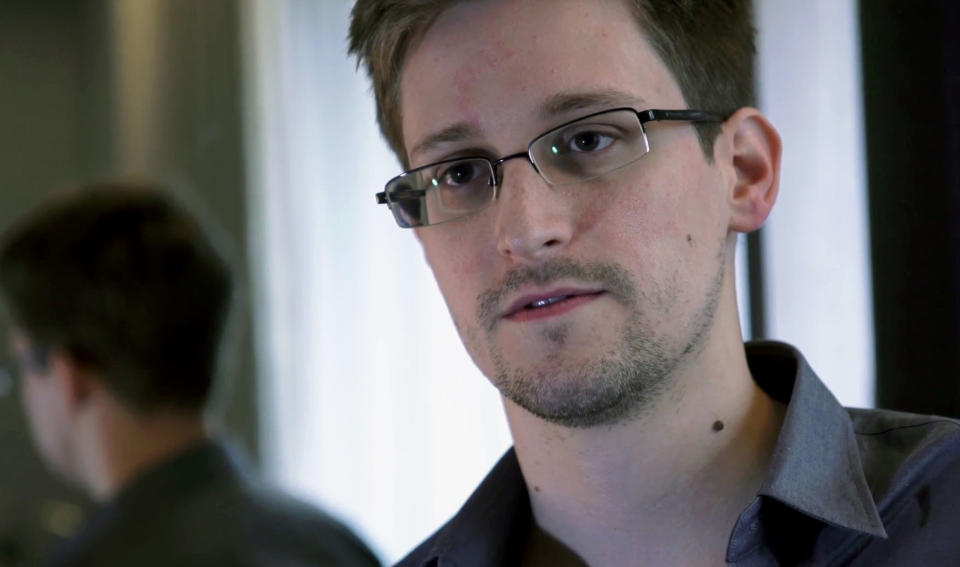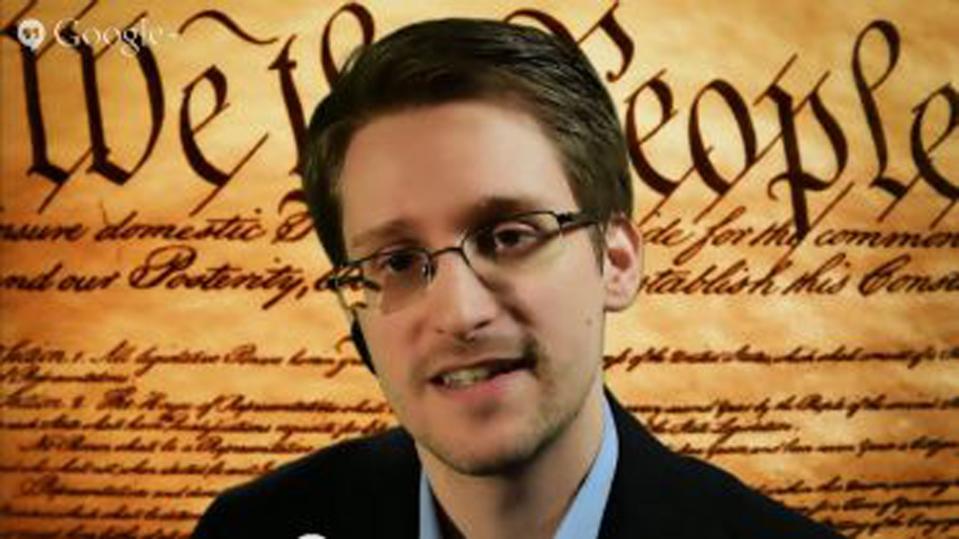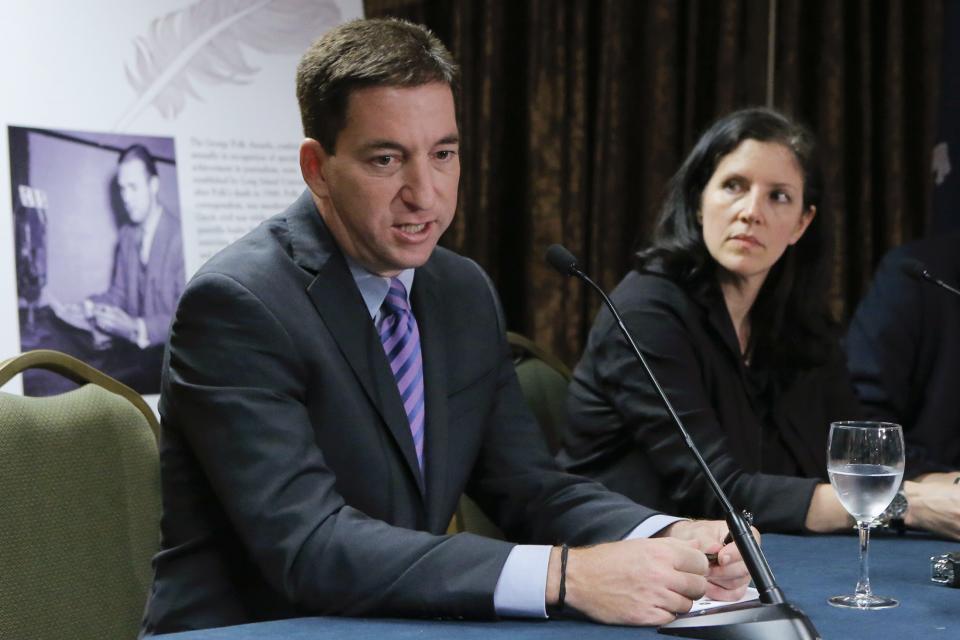Greenwald details day Snowden revealed himself as NSA whistleblower
Nearly a year after Edward Snowden revealed himself as the National Security Agency contractor-turned-whistleblower, Glenn Greenwald — the former Guardian journalist who helped unveil Snowden as the source of the leaks — is sharing more behind-the-scenes details of the events in Hong Kong in the hours before Snowden's announcement.
A few days before the Guardian revealed him as the source, Snowden told Greenwald that "an Internet-connected security device at the home he shared with his longtime girlfriend in Hawaii had detected that two people from the NSA" had come looking for him, Greenwald writes in an excerpt from an upcoming book, "No Place to Hide," published by the Guardian on Sunday.
Greenwald was skeptical that the visit meant the NSA suspected Snowden was behind the leaks, but he knew that he and filmmaker Laura Poitras had to hustle.
"We were determined that the world would first hear about Snowden, his actions and his motives, from Snowden himself," Greenwald writes, "not through a [demonization] campaign spread by the US government while he was in hiding or in custody and unable to speak for himself."
After taping a second video interview with Snowden, Greenwald writes, the reality of disclosing Snowden's identity set in.
"The relatively lighter mood we had managed to keep up over the prior few days now turned to palpable anxiety: we were less than 24 hours away from revealing Snowden's identity, which we knew would change everything, for him most of all," Greenwald writes. "The three of us had lived through a short but exceptionally intense and gratifying experience. One of us, Snowden, was soon to be removed from the group, likely to go to prison for a long time — a fact that had depressingly lurked in the air from the outset, at least for me."
The Guardian published the story ("Edward Snowden: The Whistleblower Behind the NSA Surveillance Revelations") and accompanying video on June 9, 2013. (Last month, the paper won a Pulitizer prize for its Snowden reporting.)
"Poitras, Snowden and I followed the reaction to his exposure together, while I also debated with two Guardian media strategists over which Monday-morning TV interviews I should agree to do," Greenwald recalls. "We settled on Morning Joe on MSNBC, followed by NBC's Today show — the two earliest shows, which would shape the coverage of Snowden throughout the day."
But with the entire world now looking for them in Hong Kong, media swarmed Greenwald's hotel before lawyers looking to represent Snowden could get there.
"Alan [Rusbridger, editor of the Guardian] is adamant that we give him all the support we legally can," Gill Phillips, the Guardian's chief lawyer, told Greenwald.
Poitras and Snowden were staying at a different hotel, which Snowden was trying to leave without being recognized.
"I'm in the process of taking steps to change my appearance," Snowden said. "I can make myself unrecognizable."
Greenwald and Phillips then went to the lobby of their hotel to "lure the reporters, still waiting outside our door, to follow me. The lawyers would then wait for a few minutes and exit the hotel, hopefully without being noticed."
It worked, and the lawyers that Phillips vetted for Snowden met the whistleblower in his hotel room, and whisked him away to a "safe house." He was later granted asylum in Russia, where he remains.
Greenwald's interviews with "Morning Joe" and the "Today" show "were acrimonious and acerbic," he writes, because he felt Snowden was being attacked by journalists who had "resumed their accustomed role as servants to the government":
The story was no longer that reporters had exposed serious NSA abuses but that an American working for the government had "betrayed" his obligations, committed crimes, and then "fled to China." ... Sleep-deprived for more than a full week now, I had no patience for the criticisms of Snowden embedded in their questions: journalists, I felt, should be celebrating, not [demonizing], someone who had brought more transparency to the national security state than anyone in years.
Related video:




